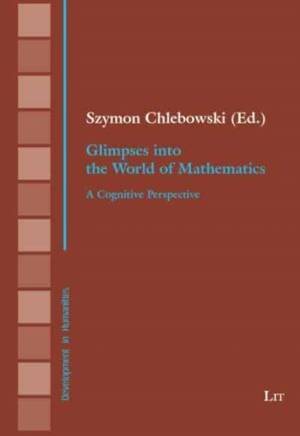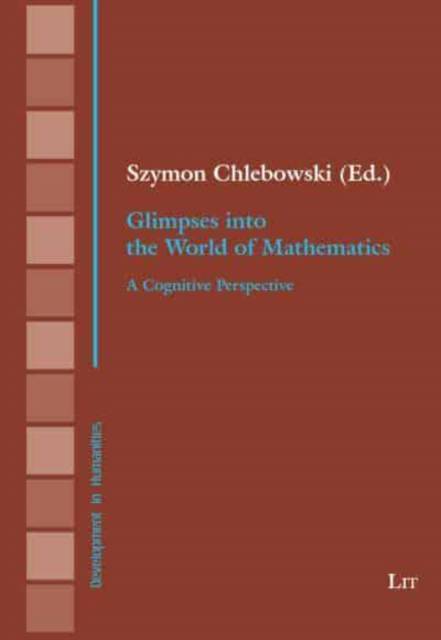
Je cadeautjes zeker op tijd in huis hebben voor de feestdagen? Kom langs in onze winkels en vind het perfecte geschenk!
- Afhalen na 1 uur in een winkel met voorraad
- Gratis thuislevering in België vanaf € 30
- Ruim aanbod met 7 miljoen producten
Je cadeautjes zeker op tijd in huis hebben voor de feestdagen? Kom langs in onze winkels en vind het perfecte geschenk!
- Afhalen na 1 uur in een winkel met voorraad
- Gratis thuislevering in België vanaf € 30
- Ruim aanbod met 7 miljoen producten
Zoeken
Omschrijving
Essays collected in this volume deal with various problems from the philosophy of mathematics. What connects them are two questions: how mathematics is created and how it is acquired. In 'Three Worlds of Mathematics' we are familiarized with David Tall's ideas pertaining to the embodied, symbolic and formal worlds of mathematics. In 'Basic Ideas of Intuitionism', we focus on an epistemological approach to mathematics which is distinctive to constructive mathematics. The author focuses on the computational content of intuitionistic logic and shows how it relates to functional programming. 'The Brave Mathematical Ant' carefully selects mathematical puzzles related to teaching experiences in a way that the solution requires creativity and is not obtainable by following an algorithm. Moreover the solution gives us some new insight into the underlying idea. 'Degrees Of Accessibility Of Mathematical Objects' discusses various criteria which can be used to judge accessibility of mathematical objects. We find logical complexity, range of applications, existence of a physical model as well as aesthetic values.
Jerzy Pogonowski, Faculty of Psychology and Cognitive Sciences, Adam
Mickiewicz University, Poznań
Szymon Chlebowski, Faculty of Psychology and Cognitive Sciences, Adam
Mickiewicz University, Poznań
Barbara Borkowicz, Faculty of Mathematics and Computer Science, Adam
Mickiewicz University, Poznań
Jerzy Pogonowski, Faculty of Psychology and Cognitive Sciences, Adam
Mickiewicz University, Poznań
Szymon Chlebowski, Faculty of Psychology and Cognitive Sciences, Adam
Mickiewicz University, Poznań
Barbara Borkowicz, Faculty of Mathematics and Computer Science, Adam
Mickiewicz University, Poznań
Specificaties
Betrokkenen
- Auteur(s):
- Uitgeverij:
Inhoud
- Aantal bladzijden:
- 142
- Taal:
- Engels
- Reeks:
Eigenschappen
- Productcode (EAN):
- 9783643913654
- Verschijningsdatum:
- 1/01/2021
- Uitvoering:
- Paperback
- Formaat:
- Trade paperback (VS)
- Afmetingen:
- 164 mm x 234 mm
- Gewicht:
- 249 g

Alleen bij Standaard Boekhandel
+ 89 punten op je klantenkaart van Standaard Boekhandel
Beoordelingen
We publiceren alleen reviews die voldoen aan de voorwaarden voor reviews. Bekijk onze voorwaarden voor reviews.









